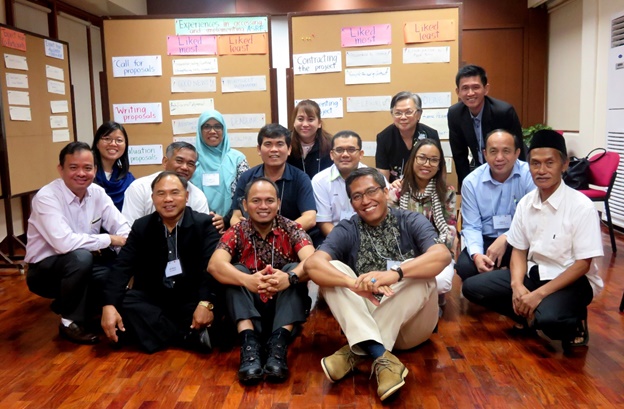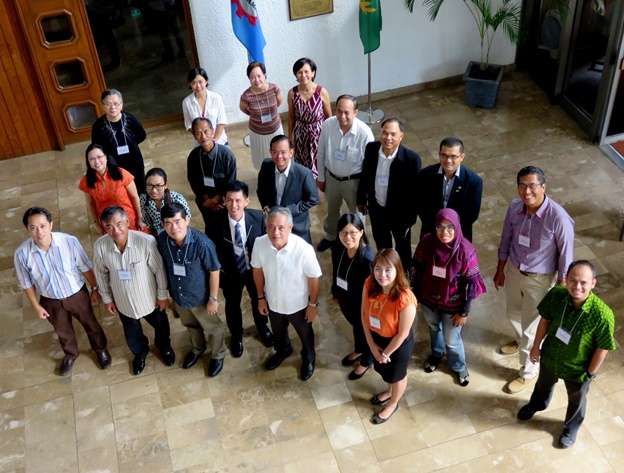The participants from eight ASEAN countries that included the Philippines, Cambodia, Indonesia, Thailand, Myanmar, Malaysia, Vietnam, and Lao PDR were representatives of projects that received funding from the ASRF through SEARCA. The grants facility, now nearing its third year of operation, was established as a flexible funding mechanism of the ASEAN-Swiss Partnership on Social Forestry and Climate Change (ASFCC) in April 2014, through funding from the Swiss Agency for Development and Cooperation (SDC).
In his welcome remarks, SEARCA Director Dr. Gil C. Saguiguit, Jr. stated that the projects supported by the ASRF had been successful in generating lessons and information that can serve as meaningful input to national social forestry policies in the grantees’ respective countries. Dr. Saguiguit also emphasized the significant contribution of the knowledge-sharing workshop in designing the next phase of the grants facility and in ensuring continued benefits to stakeholders even after project termination.
In the workshop, participants were divided into clusters covering three key areas. Cluster 1 tackled national and local consultations to develop roadmaps and enhance policymaking and implementation. Speakers for this cluster included Mr. Ramli bin Mat (Malaysia), Dr. Ei Ei Hlaing (Myanmar), Mr. Long Ratanakoma (Cambodia), Mr. Somsack Sysomvang (Lao PDR), Mr. Tubagus Ajie Rahmansyah (Indonesia), and Ms. Fadila Ibra (Indonesia). Cluster 2, meanwhile, focused on studies and assessments as inputs to policymaking, and included Dr. Hoang Lien Son (Vietnam), Mr. Ridwan Soleh (Indonesia), Ms. Chan Sophoan (Cambodia), Dr. Rico Ancog (Philippines), and Dr. Pitojo Budiano (Indonesia) as presenters. Lastly, Cluster 3 involved study tours that were presented by Mr. Sumai Maiman (Thailand), Mr. bin Mat, and Dr. Hlaing.
 The participants pose for a group photo with Facilitator, Dr. Daylinda B. Cabanilla, at the end of the workshop.
The participants pose for a group photo with Facilitator, Dr. Daylinda B. Cabanilla, at the end of the workshop.
In the open forum that followed the presentations, clarifications were raised on project results, methodologies used in research, and the link between research, policy, and action programs, among others. Participants were also able to relate the difficulties, needs, and opportunities that arose in the course of implementing their projects. Moreover, fundamental issues in social forestry programs such as benefit-sharing, people’s participation, policy harmonization, and institutional synergy were revisited, taking into consideration the specific context of each ASEAN Member State.
After the presentations, Dr. Dixon Gevaña and Ms. Maricel Tapia, faculty members from the College of Forestry and Natural Resources, University of the Philippines Los Baños (CFNR-UPLB), who served as technical reviewers of the final reports, facilitated the knowledge synthesis workshop to distill the lessons learned from project implementation. Dr. Daylinda B. Cabanilla, former Professor of the CFNR-UPLB’s Department of Social Forestry and Forest Governance, served as the overall facilitator for the knowledge-sharing workshop. (Christian Ray Buendia)
